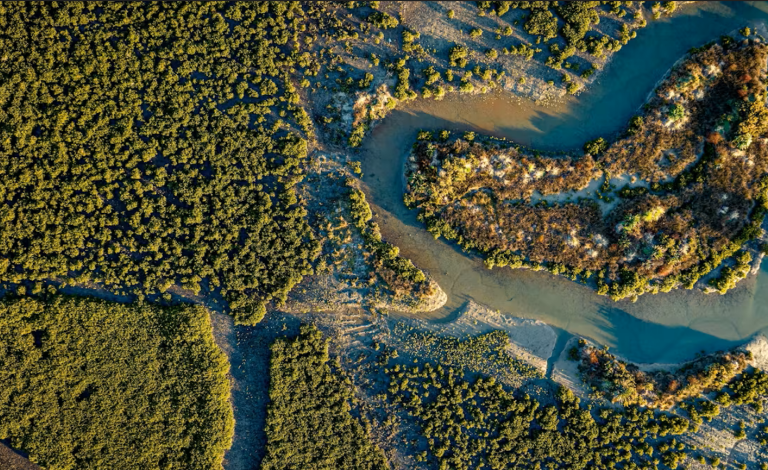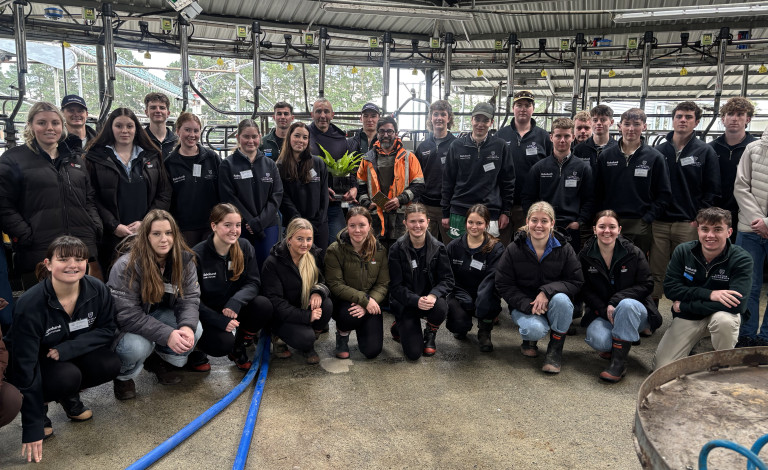Renewed focus on protecting New Zealand’s marine systems
07 July 2025 | News
New Zealand’s marine environments are vital to our way of life. As a maritime nation, New Zealanders not only live along coastlines but also depend on the ocean for food and their livelihoods. Professor Chad Hewitt of Te Whare Wānaka o Aoraki Lincoln University is calling for renewed attention to our marine systems, highlighting the need to adopt modern tools to manage invasive non-native species and mitigate the effects of climate change.
With an extensive career in research and policymaking in marine systems, aquaculture development and coastal management in Western Australia and New Zealand, Professor Hewitt says that while non-native marine species related to fisheries have been studied, there is a growing awareness that the impacts of bioinvasions on the greater marine environment needs to be better understood.
Non-native invasive species, explains Professor Hewitt, are predominantly introduced to New Zealand waters through biofouling (microorganisms, plants, and animals attaching to submerged surfaces on boats) and vessel ballast water. To date, while significant progress has been made in managing non-native species entering New Zealand, further action is needed, as Professor Hewitt shares.
“Since the 1980s, there has been a massive explosion in research exploring how non-native marine species are introduced into native communities. More recently, Australia and New Zealand have led the world in investigating interventions to prevent bioinvasions. Today, as a maritime nation facing climate change and numerous other challenges, our dominant focus on invasive species and their impact on our land-based production systems is preventing us from allocating the funds needed to ensure we keep protecting our aquatic ecosystems.”
One of the most significant challenges looming is the impact of climate change on our coastlines and oceans.
“We’ll experience warmer waters, so traditionally cold-water ports will start experiencing temperature increases. Species that couldn’t survive previously will now be able to, and this applies to Antarctica and the Arctic too. Additionally, with warming waters, transport networks will likely alter with the opening of the Northwest Passage through the Arctic, resulting in changed shipping routes.
“With greater storm activity and the potential for sea level rise, to protect coastal areas, barriers and other structures will continue to be installed along coastlines. As these installations are attractive to non-native species, they will alter our coastal habitats, leading to a greater presence of non-native species in competition with native communities,” explains Professor Hewitt.
To assist policymakers with strengthening support for marine biosecurity, Professor Hewitt proposes a greater emphasis in policy creation on the values the public attaches to coastal areas. In Environmental Science and Policy, Professor Marnie Campbell, Dr Chi Thai Uyen Le and Professor Hewitt co-authored the article Critical coastal values impacted by marine bioinvasions: What the public value about marine and coastal areas and what is at stake? In it, they identified an extensive range of values, beliefs and expectations held by Kiwis for coastal environments.
“The traditional categorisation framework used by policymakers doesn’t capture all the values held. Our sample of 1,000 New Zealanders demonstrates that people attach values to, for example, access, connection and a desire for a clean environment. Each of these values is affected by the presence of non-native species and any mitigating action taken to manage them. If you close an area to undertake eradication, people will experience a loss of access to it.
“By understanding the values New Zealanders attach to coastal areas that non-indigenous species could potentially impact, policymakers would be better equipped to design actions that will support positive social responses to marine biosecurity interventions. By doing so, we’ll be able to strengthen biosecurity in New Zealand,” says Professor Hewitt.
This revised focus in policymaking is important to adopt, says Professor Hewitt, if we are to minimise marine invasions of non-native species, extending this work beyond the primary points of entry of commercial and recreational vessels and oil and gas exploration zones in New Zealand, to reach other coastal areas of significance.
“We have a solid baseline of knowledge, understanding the species present in our waters, the mechanisms non-native species use, and implementing the necessary interventions. Now, marine research needs to move forward by implementing an updated marine biosecurity model that differs from the one adopted 25 years ago. It should benefit from advancements in AI and robotics, utilising them to help identify species, along with environmental DNA. These are more powerful tools than we’ve had before,” says Professor Hewitt.
Click here to view Professor Hewitt's Excellence Series talk on Marine Biosecurity: A 30-Year Retrospective on Delivering Outcomes.
For media enquiries, email media@lincoln.ac.nz


